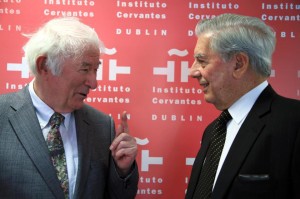Blog del Instituto Cervantes de Dublín
Torre Martello
No solo de mesas vive el Festival Isla de Literatura / It’s not just about round table discussions
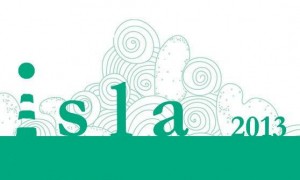 No, en el Festival Isla no solo hay mesas redondas.
No, en el Festival Isla no solo hay mesas redondas.
A lo largo de las últimas semanas hemos estado desgranando en estas páginas los detalles de las mesas redondas que conforman el Festival Isla de Literatura. Pero nuestro festival es mucho más que eso, porque además tendrás la oportunidad de asistir a lecturas en inglés y en español de textos de poesía y narrativa, leídos por sus propios autores, tendrás la posibilidad de comprar sus libros, y tendrás la ocasión de tomarte un café y un tentempié en nuestra sala de exposiciones. Allí mismo podrás encontrarte con los autores que participan en el evento y pedirles que firmen tu ejemplar.
Disfruta de la literatura, en todos los sentidos, en compañía de René Vázquez, Daniel Freidemberg, Tomás Mac Síomóin, Paula Meehan, Kirmen Uribe, Enrique Vila-Matas, John Banville, Eileen Battersby, John Boyne, Julio Espinosa, Álvaro Enrigue, María Tena, Fernando Sánchez Dragó, Marina Carr, Susana Cella y Manuel Gutiérrez Aragón. Estás avisado. ¡Allá tú si te lo pierdes!
No. Isla Festival of Literature is not just about round table discussions.
Over the last few weeks, we have been showing in these pages the details of the round table discussions that will be held during our Festival Isla of Literature. But our festival is much more than that, because you will also have the opportunity to join our readings of poetry and fiction, with texts read by the authors themselves. You will have the occasion to buy their books, and to take a coffee and a snack in our exhibition room. Right there, you can meet the authors participating in the event and ask them to sign your copy.
Enjoy the best literature in the company of René Vázquez, Daniel Freidemberg, Tomás Mac Síomóin, Paula Meehan, Kirmen Uribe, Enrique Vila-Matas, John Banville, Eileen Battersby, John Boyne, Julio Espinosa, Álvaro Enrigue, María Tena, Fernando Sánchez Dragó, Marina Carr, Susana Cella and Manuel Gutiérrez Aragón. You are warned! Don’t miss it!
Audiolibro de la semana: Los ojos del tuareg / Audiobook of the week
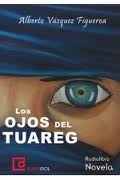
Esta semana te traemos el audiolibro Los ojos del tuareg de Alberto Váquez Figueroa, una novela que es la continuación de su gran éxito literario Tuareg.
Esta obra, inspirada en hechos reales, narra en primera persona el dramatismo de los conflictos provocados por uno de los grandes acontecimientos deportivos y publicitarios del mundo occidental, el famoso rally París-Dakar. Frente al espectáculo televisivo que nosotros conocemos, existe otra cara muy distinta: la destrucción del medio ambiente y la falta de respeto por la vida de los nativos del desierto de África.
La novela nace con una intención de denuncia, y abunda en diálogos en torno al cinismo de una sociedad occidental corrompida por el dinero.
Para descargar este audiolibro solo necesitas tu carnet de biblioteca y pulsar aquí.
This week, we bring you the audiobook Los ojos del tuareg by Alberto Vázquez Figueroa, the second part of his literary success Tuareg.
This novel, inspired by true events and narrated in first person, relates the drama of the conflicts caused by one of the biggest sports events in the world: the París–Dakar rally.
Despite the television show we all know, there is another very different side of this event: the destruction of the environment and the lack of respect for the lifes of the natives of the African desert.
In that sense, Los ojos del tuareg is a report plenty of dialogues about the cynicism of our Western society corrupted by money.
Downloading this audiobook only requires your library card and your password. Los ojos del tuareg is just one click away from you.
Hispanic power / Poder hispano
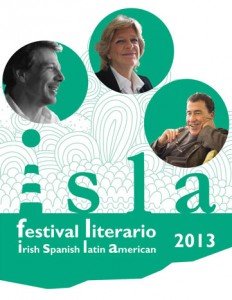 Is there anybody there on the other side of the book? How do readers and writers connect today? Faced with uncertainty, María Tena continues writing and editing, having dedicated her entire life to the world of culture, with eminent roles in this area.
Is there anybody there on the other side of the book? How do readers and writers connect today? Faced with uncertainty, María Tena continues writing and editing, having dedicated her entire life to the world of culture, with eminent roles in this area.
Álvaro Enrigue, literary critic, novelist and Professor of creative writing, hails from the United States, where Hispanic power is becoming increasingly visible. However, is it possible to “create” writers, when it seems like readers tear them apart? How much power does an editor have over the final draft? What about a critic or an agent? Does an author have any power? How powerful are the institutions that set trends?
Fernando Sánchez Dragó, essayist, novelist, anarchist and literary scholar, will also participate in the discussion of these powerful themes.
“Hispanic power” is the title of our fourth round-table discussion in our Isla Literary Festival. Moderated by Catherine Leen.
¿Hay alguien ahí, del otro lado del libro?, ¿dónde se encuentran hoy escritores y lectores? Ante la incertidumbre, María Tena continúa escribiendo y editando tras una vida entera dedicada al mundo de la cultura, con puestos de gran responsabilidad en esta área.
Desde Estados Unidos, donde el «poder hispano» se hace cada vez más visible, llega Álvaro Enrigue, crítico literario, novelista y profesor de literatura creativa. Pero, ¿acaso es posible «hacer escritores» cuando parece que los lectores se «deshacen»? ¿Cuál es el poder del editor sobre la calidad final de la obra?, ¿y de un crítico, de un agente?, ¿tiene algún poder el autor?, ¿cuál es el poder de las instituciones para marcar tendencias?
Sobre estos y otros poderosos temas tendrá también mucho que aportar Fernando Sánchez Dragó, ensayista, novelista, anarquista individualista, sabio de la literatura.
Audiobook of the Week | Audiolibro de la semana: Una canción para Susana
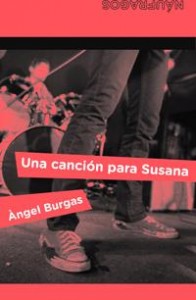 This week we bring you the audiobook Una canción para Susana by Àngel Burgas. This story children is for young adults but it can be enjoyed by people of all ages. The downloading of this audiobook only requires your library card and click here.
This week we bring you the audiobook Una canción para Susana by Àngel Burgas. This story children is for young adults but it can be enjoyed by people of all ages. The downloading of this audiobook only requires your library card and click here.
In modern Barcelona, the young members of a band and their friends face everyday and also unusual situations: the discovery of sex, autism caused by technology, induced suicide … This is an uncompromising portrait of a youth very real.
Esta semana te traemos el audiolibro Una canción para Susana de Àngel Burgas. Es una historia para adolescentes pero se puede disfrutar a todas las edades. La descarga de este audiolibro solo requiere que busques tu carnet de biblioteca y pulses aquí.
En la Barcelona más actual, los jóvenes componentes de un grupo musical y sus amigos se enfrentan a situaciones cotidianas y otras no tanto: el descubrimiento del sexo, el autismo producido por la tecnología, el suicidio inducido… el retrato sin concesiones de una juventud muy real.
It’s time for DELE! / ¡Es hora de preparar el DELE!
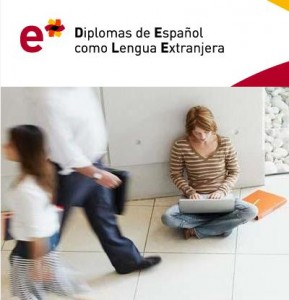 Because Spanish is the second international language for business and communication after English. Because Spanish is the second language by number of native speakers after Mandarin. Because four Spanish speaking countries, Chile, Colombia, Mexico and Peru are in the top of the list of strongest emerging countries at the moment. Because speaking Spanish is considered a very important asset in countries like China, Japan, USA and Brazil, and many companies value their Spanish-speaking employees. Because in 2050, the USA will be the country with the largest Spanish-speaking population in the world, ahead of Mexico. Because on the Internet, Spanish ranks third as the most popular language after English and Mandarin. Because in Facebook and Twitter, Spanish is the second most used language after English.
Because Spanish is the second international language for business and communication after English. Because Spanish is the second language by number of native speakers after Mandarin. Because four Spanish speaking countries, Chile, Colombia, Mexico and Peru are in the top of the list of strongest emerging countries at the moment. Because speaking Spanish is considered a very important asset in countries like China, Japan, USA and Brazil, and many companies value their Spanish-speaking employees. Because in 2050, the USA will be the country with the largest Spanish-speaking population in the world, ahead of Mexico. Because on the Internet, Spanish ranks third as the most popular language after English and Mandarin. Because in Facebook and Twitter, Spanish is the second most used language after English.
DELE is the abbreviation for Diploma de Español como Lengua Extranjera (Diploma in Spanish as a Foreign Language). These diplomas offer the only internationally accredited official titles which confirm a command of the Spanish Language and are awarded by the Spanish Ministry for Education, Culture and Sport. Now, you can enrol for our new DELE courses and for next DELE examinations in November 22nd-23rd.
Registration for DELE is open between September 16 and October 18.
Still wondering why you should take it?
Porque el español es la segunda lengua de negocios y de comunicación internacional después del inglés. Porque el español es la segunda lengua en número de hablantes nativos después del mandarín. Porque cuatro países de habla hispana, Chile, Colombia, México y Perú se hallan en la lista de los 11 países emergentes con más fuerza del momento. Porque hablar español se considera un activo muy importante en países como China, Japón, Estados Unidos o Brasil y muchas empresas valoran que sus empleados hablen español. Porque en el año 2050, Estados Unidos será el país con mayor número hispanohablantes del planeta, por delante de México. Porque en Internet, el español ocupa el tercer puesto como el idioma más utilizado después del inglés y el mandarín. Porque en Facebook y en Twitter el español es la segunda lengua más usada tras el inglés.
La abreviatura DELE significa Diploma de Español como Lengua Extranjera. Estos diplomas son los únicos títulos oficiales de carácter internacional acreditativos del dominio del idioma español, que otorga el Ministerio de Educación, Cultura y Deporte de España. En Irlanda, estos exámenes son organizados por el Instituto Cervantes.
La matrícula para realizar el examen está abierta desde el 16 de septiembre hasta el 18 de octubre.
¿Todavía te estás planteando por qué deberías realizar el examen?
Dublin and other Cities of Literature / Dublín y otras ciudades de la literatura
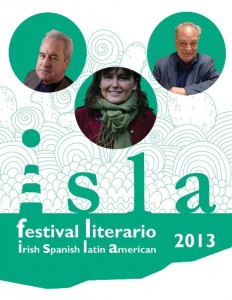 “Dublin and other Cities of Literature” is the title of the second round-table discussion in our Isla Literary Festival 2013. With John Banville, Eileen Battersby and Enrique Vila-Matas, we will travel from 1950s Dublin, reflected in Benjamin Black´s Vengeance to the modern-day Dublin of Enrique Vila-Matas and Dublinesca, through cosmopolitan landscapes, remote in space and time, inhabited by the characters of John Banville.
“Dublin and other Cities of Literature” is the title of the second round-table discussion in our Isla Literary Festival 2013. With John Banville, Eileen Battersby and Enrique Vila-Matas, we will travel from 1950s Dublin, reflected in Benjamin Black´s Vengeance to the modern-day Dublin of Enrique Vila-Matas and Dublinesca, through cosmopolitan landscapes, remote in space and time, inhabited by the characters of John Banville.
What does it mean to be a City of Literature?
Uno de los platos fuertes de nuestro Festival Isla 2013 será sin duda la mesa redonda protagonizada por John Banville, Eileen Battersby y Enrique Vila-Matas. Con ellos viajaremos desde el Dublín de los años 50, que aparece reflejado en Venganza, de Benjamin Black, hasta el Dublín moderno de Enrique Vila-Matas y su Dublinesca, pasando por los paisajes cosmopolitas, distantes en el espacio y en el tiempo, habitados por los personajes de John Banville.
Juan José Manzano
 Juan José Manzano is an Andalusian-born Flamenco guitar player. José’s own compositions and improvisations bring you closer to the purest form of Flamenco Guitar with sounds from the Bay of Cadiz.
Juan José Manzano is an Andalusian-born Flamenco guitar player. José’s own compositions and improvisations bring you closer to the purest form of Flamenco Guitar with sounds from the Bay of Cadiz.
He is mainly influenced by the purest Flamenco artists and has performed across Andalusia for over 15 years. Juan José is now living in Ireland and his music reflects an influence of world music with gentle personal touches that remind us of the tranquility of the fishing white washed villages of Southern Spain.
He will be at Instituto Cervantes in Dublin next Thursday, 26th September, from 7:30pm.
Juan José Manzano es un guitarrista flamenco nacido en Andalucía. Por medio de sus composiciones e improvisaciones, José nos acerca a la más pura guitarra flamenca con aires gaditanos.
La influencia de Juan José proviene fundamentalmente de los artistas del flamenco más puro. Ha tocado por toda Andalucía durante más de 15 años y ahora vive en Irlanda. Su música refleja una influencia de las músicas del mundo con toques más dulces y personales que nos recuerdan la tranquilidad de los pueblos blancos marineros del sur de España.
Juan José Manzano estará con nosotros el próximo jueves, 26 de septiembre, a partir de las 7:30 de la tarde.
Poetry: profession or possesion? / Poesía: ¿profesión o posesión?
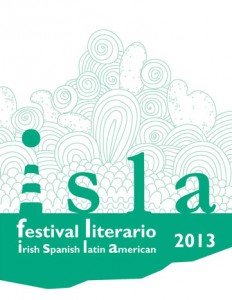 People have always questioned the nature of poetry. Does the poet who writes the poem have control over it, or is it actually the poetry that takes hold of the poet, which he uses to express himself?If the poet is indeed the protagonist, the true essence of poetry, how does it serve him and the role that he plays? What is, or what should be, his relationship with power and the public?
People have always questioned the nature of poetry. Does the poet who writes the poem have control over it, or is it actually the poetry that takes hold of the poet, which he uses to express himself?If the poet is indeed the protagonist, the true essence of poetry, how does it serve him and the role that he plays? What is, or what should be, his relationship with power and the public?
Friday, 18th October, the first round-table in our Isla Literary Festival 2013 presents three poets with very different backgrounds and influences, Miguel Barnet (Cuba), Daniel Freidemberg (Argentina), and Tomás Mac Síomóin (Ireland) will explore these themes that bring us close to Calliope´s heart. Moderated by Lorna Shaughnessy.
Desde siempre, el ser humano se ha preguntado por la naturaleza de la poesía. ¿Es el poeta quien escribe el poema, quien lo domina, o es por el contrario la poesía la que posee al poeta y lo utiliza para expresarse? Y si el poeta es el protagonista, el verdadero centro de la poesía, ¿para qué sirve él y el oficio que desempeña?, ¿cuál es o debe ser su relación con el poder y la res pública?
En la mesa que abrirá nuestro Festival Isla 2013, tres poetas de muy diferentes procedencias e influencias, Miguel Barnet (Cuba), Daniel Freidemberg (Argentina) y Tomás Mac Síomóin (Irlanda) partirán de estos temas rumbo hacia el corazón de Calíope. Moderados por Lorna Shaughnessy.
Frida Kahlo at the Instituto Cervantes in Dublin / Frida Kahlo en el Instituto Cervantes de Dublín
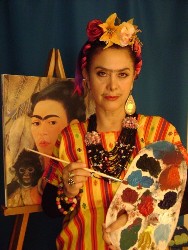 Two years ago, we had the opportunity to enjoy the musical show “Frida Kahlo…Love, Pain, Passion and Songs”. Tomorrow, thanks to the collaboration of the Embassy of Mexico in Ireland, Frida Kahlo / Ana Salas will perform again this artistic work based on the life of the great painter Frida Kahlo. Don’t miss it!
Two years ago, we had the opportunity to enjoy the musical show “Frida Kahlo…Love, Pain, Passion and Songs”. Tomorrow, thanks to the collaboration of the Embassy of Mexico in Ireland, Frida Kahlo / Ana Salas will perform again this artistic work based on the life of the great painter Frida Kahlo. Don’t miss it!
Como ya hiciera hace dos años, Frida Kahlo / Ana Salas estará mañana con nosotros, en el Instituto Cervantes de Dublín, presentando su espectáculo “Frida Kahlo…Amor, Dolor, Pasión y Canción”.
Este es un espectáculo biográfico musical que nos llega de la mano de le Embajada de México en Irlanda y que tiene como tema central la vida de la gran pintora Frida Kahlo. ¡Anótalo en tu agenda!
Audiobook of the week | Audiolibro de la semana: Cuentos de hombres
Cuentos de hombres by Susana Pérez Alonso is our recommendation of the week. The protagonists of the nine stories in this book are women indeed. Active, determined and independent 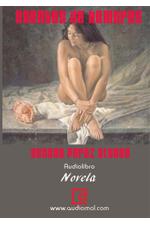 women. Therefore they are not willing to give up the pleasures and suffering involved in living with the opposite sex. Our audiook download service is very easy to use. You just need your library card and click here.
women. Therefore they are not willing to give up the pleasures and suffering involved in living with the opposite sex. Our audiook download service is very easy to use. You just need your library card and click here.
Cuentos de hombres is a mosaic of lives in which women may find themselves and identify, and men, why not, will learn to know those who have at their side.
Cuentos de hombres de Susana Pérez Alonso es nuestra recomendación de la semana. Las protagonistas de las nueve historias que componen este libro son, efectivamente, mujeres. Mujeres activas, decididas, independientes, que no por ello están dispuestas a renunciar a los placeres y los sufrimientos que conlleva la convivencia con el sexo opuesto. Nuestro servicio de audiolibros es muy sencillo de utilizar. Tan solo necesitas tu tarjeta de la biblioteca y pulsar en el enlace.
Cuentos de hombres compone así un mosaico de vidas en las que las mujeres podrán encontrarse a sí mismas e identificarse, y con las cuales los hombres, por qué no, aprenderán a conocer a quienes tienen a su lado.
Dublinesque in Dublin / Dublinesca en Dublín
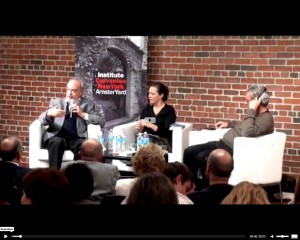 Less than a year ago, Catalan writer Enrique Vila-Matas presented in New York the English translation of his novel Dublinesque, accompanied by his friend Paul Auster.
Less than a year ago, Catalan writer Enrique Vila-Matas presented in New York the English translation of his novel Dublinesque, accompanied by his friend Paul Auster.
In Dublinesque, Samuel Riba, a successful publisher in Barcelona, decides to visit Dublin, a city he has never visited but once dreamed about, on the pretext of honouring James Joyce’s Ulysses on Bloomsday.
Enrique Vila-Matas explains all this much better in his own words in this video recorded at the Instituto Cervantes in New York. We invite you to watch it as a foretaste of what you can see during the Isla Literary Festival that will take place next month in Dublin.
Enrique Vila-Matas is one of our guest writers and he will participate in a round table discussion on Saturday morning with John Banville and Eileen Battersby. He will also participate in the reading session scheduled for Friday, October 18th.
Enrique Vila-Matas presentó en Nueva York, hace poco menos de un año, la traducción al inglés de su novela Dublinesca, acompañado por su amigo Paul Auster. Enrique Vila-Matas contaba entonces cómo su libro es un viaje al corazón de Dublín, de la mano de un editor que convence a sus amigos para que visiten la ciudad de Joyce y Beckett.
Enrique Vila-Matas lo explica mucho mejor en este vídeo que ahora os proponemos, como anticipo de lo que podréis ver durante el Festival Isla de Literatura que se celebrará en nuestro centro el próximo mes de octubre y donde Enrique Vila-Matas será uno de los escritores invitados.
Enrique Vila-Matas participará en una mesa redonda el sábado por la mañana junto a John Banville y Eileen Battersby y también participará en la sesión de lecturas programada para el viernes, 18 de octubre, por la tarde.
Exhibition: In a faceless world. Paintings and sculptures by Amaya Bozal | Exposición: En un mundo sin rostro. Pinturas y esculturas de Amaya Bozal
Next Thursday, we open the exhibition In a faceless world with the paintings and scultures by Amaya Bozal. You can enjoy 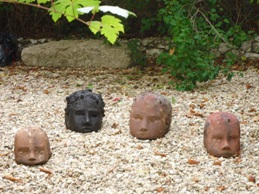
this exhibition until 17th October. The opening hours are Mon-Thu 2-7pm and Sat 10am-2pm.
Through the verses of Samuel Beckett, “what would I do without this world faceless incurious, where to be lasts but an instant”, Amaya Bozal brings to mind thoughts of fragility and violence, the starkness of the passage of time. A world wherefaces don´t belong to real people, they are archetypes, childlike heads painted with earth and gold, moulded in clay like ancient funeral masks, like the remains of an ossuary; fragments of female bodies, earth consumed by fire; wax and clay flowers punctured with old nails. This reflection conveys a depersonalized world, where femininity is only saved by its historic connection with nature.
Amaya Bozal (1972, Madrid) takes something from her classical and archaelogical training, that is reflected in all of her work – a craft she has been developing for over 20 years. She has exhibited in some of the biggest galleries – Sen, Rayuela, Fernández Brasso, Marlborough, Paul Sharpe Contemporary Art – and has participated in ARCO, ArteBA, FIA, and ArtMiami. Her work is visible in the best public and private collections in Europe. Currently, she continues to work in her studio in the mountains near Madrid, using wind, fragments of fallen trees and ancient techniques like fired clay, gold leaf and wax.
El próximo jueves día 12 inauguramos una nueva exposición: En un mundo sin rostro, con las pinturas y esculturas de la artista Amaya Bozal. La exposición permanecerá abierta hasta el 17 de octubre. Las horas de visita son de lunes a jueves de 14: 00 a 19:00 y los sábados de 10:00 a 14:00.
A partir de los versos de Samuel Beckett, “que haría yo sin este mundo sin rostro, sin preguntas, donde ser no dura sino un instante”, Amaya Bozal plantea una reflexión sobre la fragilidad y la violencia, lo descarnado del paso del tiempo. Un mundo donde los rostros no pertenecen a personas concretas, son arquetipos, cabezas infantiles pintadas con tierra y oro, moldeadas en barro como las antiguas máscaras funerarias, como restos de un osario; fragmentos de cuerpos femeninos, tierra devorada por el fuego; flores de cera y barro atravesadas por clavos antiguos. Todauna reflexión sobre un mundo despersonalizado, donde la feminidad sólo se salva en su comunión ancestral con la naturaleza.
Amaya Bozal (1972, Madrid) procede de formación clásica y arqueológica, algo que se trasluce en toda su obra, que viene desarrollando desde hace más de veinte años. Ha expuesto en las mejores galerías, Sen, Rayuela, Fernández Brasso, Marlborough, Paul Sharpe Contemporary Art y ha participado en ARCO, ArteBA, FIA, ArtMiami. Su obra está presente enlas mejores colecciones públicas y privadas de Europa. Actualmente, continúa trabajando en su estudio de la sierra de Madrid, utilizando el viento, fragmentos de árboles caídos y antiguas técnicas como la tierra chamotada, pan de oro o encáustica.
Film screening and discussion: Other voices. A different outlook on autism | Proyección y charla: Otras voces. Una mirada diferente sobre el autismo
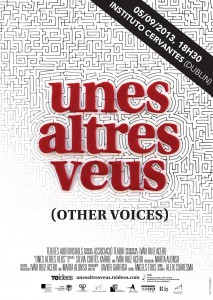 Ivan Ruiz, psychoanalyst and psychologist in Barcelona, will be at the Institute Cervantes Dublin to present his film Other Voices. A different outlook on autism. Being also an artist, photography and music are used in a unique way in the realisation of this film. The event will be at 6.30 in Café Literario.
Ivan Ruiz, psychoanalyst and psychologist in Barcelona, will be at the Institute Cervantes Dublin to present his film Other Voices. A different outlook on autism. Being also an artist, photography and music are used in a unique way in the realisation of this film. The event will be at 6.30 in Café Literario.
Other Voices is a documentary based on the testimony of Albert, a 21-year-old young man, diagnosed with Asperger’s Syndrome. His thoughts inside a maze, the conversations he has with a friend from his town and a trip to Brussels visiting the Tintin Museum bring us closer to his particular way of living and understanding the world.
The world of autism, approached from the perspectives of subjectivity, singularity and respect, is reflected in and reflected on through the testimonies of parents, grand-parents and psychoanalysts. A different view on autism that offers insight into the multiplicity of possible ways of being and surviving in the world. A song of dignity and, arguably, a question of civilization.
After the screening (English subtitles) there will be time for debate and dialogue with the audience.
Otras voces es un documental basado en el testimonio de Albert, un joven de 21 años al que se le ha diagnosticado el síndrome de Asperger, su viaje y el de los padres y abuelos de los niños diagnosticados con autismo. Un acercamiento de los psicoanalistas a un mundo distinto desde las perspectivas de la subjetividad, singularidad y respeto. Una visión del autismo que abre una ventana a otra forma de ser en el mundo. Un documental que constituye una oda de respeto y dignidad y una cuestión de civilización y derechos humanos. No te pierdas este evento hoy a las 18:30 en el Café Literario.
Después de la proyección se establecerá u debate y un turno de preguntas y respuestas con el público.
Iván Ruiz: psicoanalista, psicólogo, Presidente de TEAdir (Asociación de padres, madres y familiares de personas con un Trastorno del Espectro Autista), Director y productor de “Otras voces”, Miembro de la Escuela Lacaniana de Psicoanálisis (ELP) y la Asociación Mundial de Psicoanálisis (AMP)
Seamus Heaney with us forever / siempre con nosotros
Seamus Heaney with us forever
Seamus Heaney siempre con nosotros
Muere el poeta irlandés Seamus Heaney (RTVE)
Adiós al poeta y premio Nobel Seamus Heaney (El Mundo)
Muere el poeta y premio Nobel irlandés Seamus Heaney a los 74 años (El País)
Muere el Nobel de Literatura irlandés Seamus Heaney a los 74 años (ABC)
Audiobook of the Week | Audiolibro de la semana: Caperucita en Manhattan
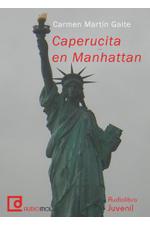 Little Red Riding Hood in Manhattan is a modern tale, a contemporary fable, a fiction with a background of reality. The author, Carmen Martín Gaite, uses the popular children’s story to convey the loneliness of life in big cities and warn of the dangers that, as if it were the dark forest, hide in its streets and individuals. If you wish to download this audiobook you only need to get your library card and click here.
Little Red Riding Hood in Manhattan is a modern tale, a contemporary fable, a fiction with a background of reality. The author, Carmen Martín Gaite, uses the popular children’s story to convey the loneliness of life in big cities and warn of the dangers that, as if it were the dark forest, hide in its streets and individuals. If you wish to download this audiobook you only need to get your library card and click here.
Sarah Allen is a ten year old girl who lives in Brooklyn. Her greatest desire is to go alone to Manhattan to take a strawberry tart to her grandmother. The grandmother of this modern Little Red Riding Hood has been a music-hall singer and has been married several times.
Caperucita En Manhattan es un cuento moderno, una fábula contemporánea, una ficción con un trasfondo de realidad. La autora, Carmen Martín Gaite, utiliza el popular cuento infantil para transmitir la soledad de la vida en las grandes ciudades y advertir de los peligros que, como si del oscuro bosque se tratara, se esconden entre sus calles e individuos. Si deseas descargar este audiolibro solamente necesitas el carnet de la biblioteca y pulsar en este enlace.
Sara Allen es una niña de diez años que vive en Brooklyn. Su mayor deseo es el de ir sola a Manhattan para llevar a su abuela una tarta de fresa. La abuela de esta moderna Caperucita ha sido cantante de music-hall y se ha casado varias veces.
